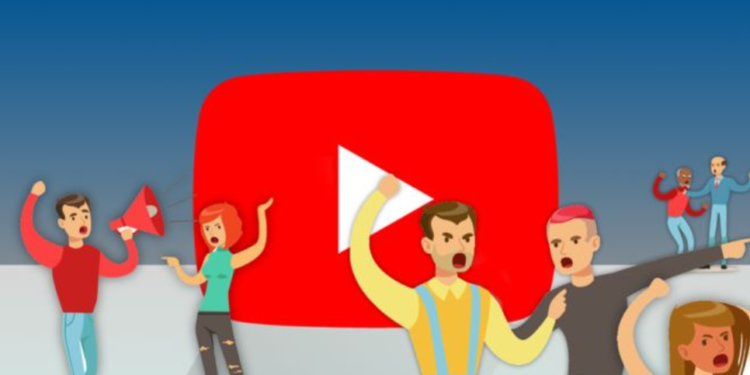YouTube is warning creators of coronavirus-related moderation changes that could impact their livelihood.
On Monday, the company announced policy enforcement changes that will come about due to the company’s response to the COVID-19 pandemic.
According to YouTube, as it prioritizes employee health, the platform will, in the short term, rely less on human moderators to review content uploaded to the site. In their place, the company will lean more heavily on its automated review systems.
“Our Community Guidelines enforcement today is based on a combination of people and technology: Machine learning helps detect potentially harmful content and then sends it to human reviewers for assessment,” reads the statement. “As a result of the new measures we’re taking, we will temporarily start relying more on technology to help with some of the work normally done by reviewers. This means automated systems will start removing some content without human review, so we can continue to act quickly to remove violative content and protect our ecosystem, while we have workplace protections in place.”
So, what does this mean for YouTube creators? The company lays it out plainly: With less human eyes reviewing the content, the automated system is likely to remove more videos from the platform regardless of whether the content violates YouTube policy.
YouTube reiterates that the systems in place to appeal wrongfully removed content will continue to work. However, YouTubers should expect delays in appeal reviews. This means that if your content is erroneously taken down, you could be waiting awhile before YouTube reinstates the video.
“The algorithm is notorious for not understanding context,” said Josh Pescatore, an independent journalist who covers YouTube news, in a statement to Mashable. “There will be more false-positives in demonetization now that the human element will be reduced in appeals.”
As people around the world self-quarantine to fight the spreading coronavirus pandemic, online video platforms like YouTube are set to provide much needed relief for individuals looking for information or entertainment. This shift to a work-from-home culture will likely result in more time spent streaming content, which should bolster views for online creators.
But will these moderation changes affect creators’ video output?
“I’m not gonna change anything because I have to do my job properly,” said YouTube creator Kyle Kulinski in a message to Mashable. Kulinski’s Secular Talk, with more than 800,000 subscribers, is one of the most popular political commentary channels on the platform.
“So far I haven’t seen any of my videos pulled, but every video on Covid-19 has been instantly demonetized,” he explained, referencing YouTube’s initial policy to remove advertising on coronavirus content so the involved parties could not profit off of a “sensitive topic.”
YouTube has since reversed its coronavirus demonetization policy to allow news organizations and approved “self-certified” channels to monetize this content.
Along with the increase in automated moderation systems, YouTube announced other temporary changes due to the coronavirus. The company said it will be “more cautious” when promoting content, such as livestreams. Content may also not appear in searches or recommendations until it’s been reviewed as well.
The Google-owned video platform is certainly doing the right thing by prioritizing employee health during this global pandemic. But, many digital operations have shifted to a work-from-home environment with minimal disruption. Mashable has reached out to YouTube to find out more about what the company is doing to keep its content moderation team up and running.
“We recognize this may be a disruption for users and creators, but know this is the right thing to do for the people who work to keep YouTube safe and for the broader community,” said YouTube in its post. “We appreciate everyone’s patience as we take these steps during this challenging time.”
Some YouTubers may fear revenue loss as videos they put time, effort, and money into get removed from the platform during this pandemic.
Pescatore pointed out another ad revenue problem on the horizon.
“As businesses like movies, restaurants & travel shut down, the need for advertising will decrease, leading to less ad buys, leading to a smaller pool of ads all around,” he explained. “Now more than ever the viewer needs to support their favorite creator because we are in totally uncharted waters.”
Kulinski explained that this latest update is no different than other times where YouTube has left creators to bear the brunt of its policy changes. YouTubers concerned about safeguarding their livelihoods should look into diversifying their revenue streams or use crowdfunding platforms like Patreon to stay afloat.
“We need direct audience support because we don’t trust YouTube,” said Kulinski. “They often pull the rug out from underneath us.”
Mashable
YouTube tells creators to expect more video removals during coronavirus pandemic
ADVERTISEMENT






